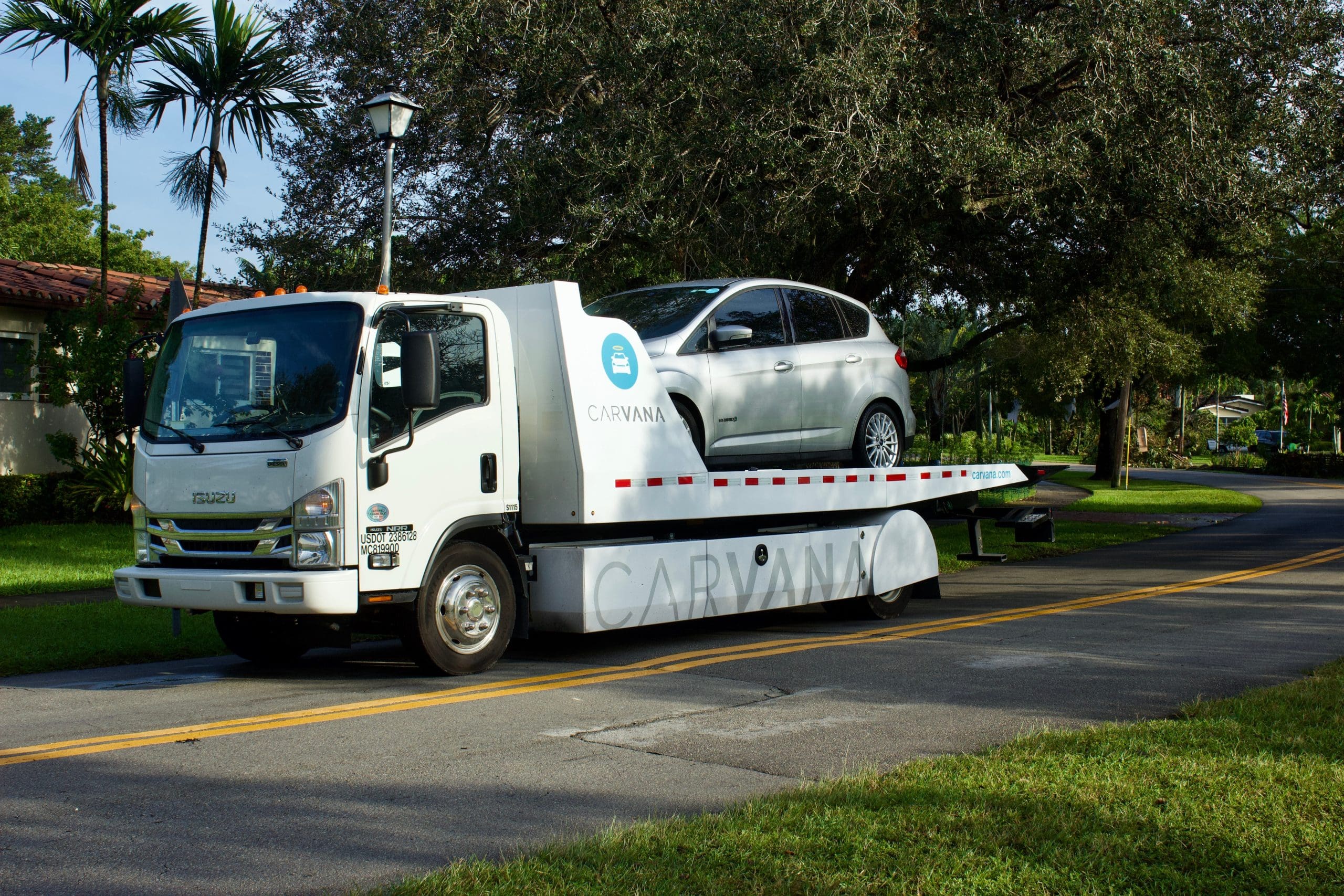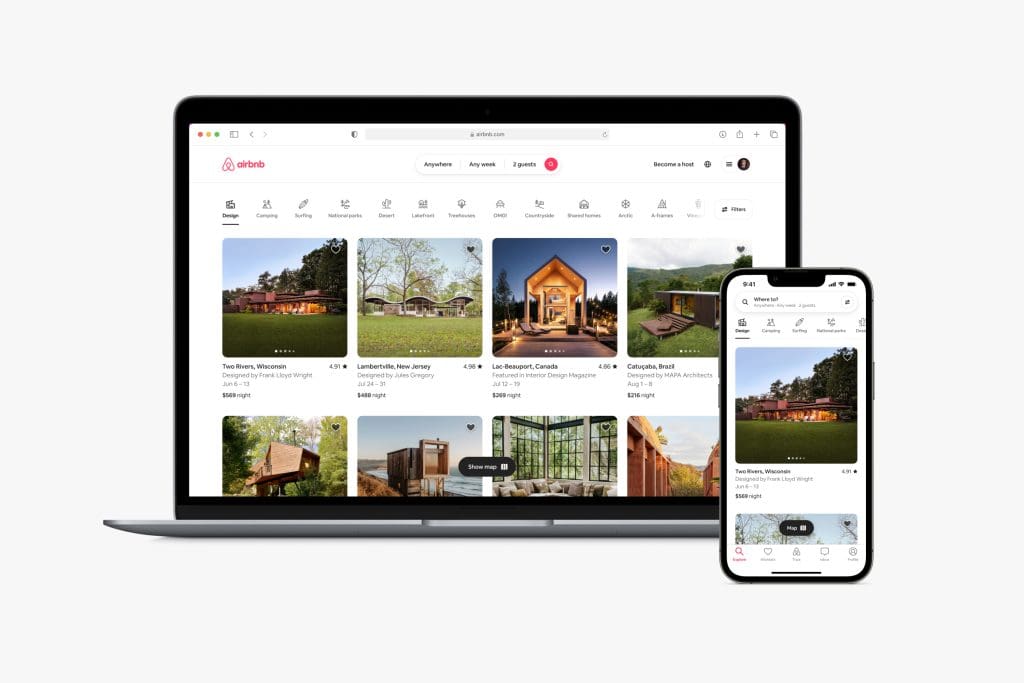
“It’s only crazy if it doesn’t work” is an attitude that entrepreneurs who are looking to disrupt their markets should have. The only way you can go about challenging the status quo and introducing innovative approaches to your business is to be willing to try things that others have dismissed or thought to be impossible.
For instance, if someone told you one day there would be giant car vending machines or people would pay to sleep in strangers’ homes, you’d probably think they had some ludicrous predictions. However, both of those are realities with the businesses of Carvana and Airbnb.
So how do you become a disruptor and what can you learn from others who have already broken the mold in their industries?
Challenge Conventional Thinking
The main element of being a disruptor is challenging established practices in your industry. In the case of Carvana, the original idea of changing the car buying process came from when Ernie Garcia III, president, CEO and chairman of Carvana, was at a wholesale auction where dealers buy cars they sell to consumers.
He noticed that they were able to decide to buy a car and purchase it in about 30 seconds and wondered if there was a way to get customers closer to that experience versus the typical four-hour process that occurs at dealerships. Just because something has always been done a certain way, doesn’t mean it has to continue to be done that way.

Often what disruptors decide to change is a fundamental element of a tried-and-true method. Take the time to question your own assumptions. Have you tested a new piece of equipment or implemented a new business model, or have you shut down these new ideas before exploring their viability?
Airbnb got its start when roommates Joe Gebbia and Brian Chesky decided to turn their loft into a bed and breakfast with air mattresses for attendees coming to a San Francisco design conference who couldn’t find a hotel room. Their idea ‘to just make some money’ eventually became an idea worth $31 billion.
By seeing the potential in their concept, Airbnb has expanded accommodation options for travelers and provided people the chance to experience unique cultural interactions based on community and trust.
Prioritize Customer-Centricity
Part of the reason disruptors are successful is because they take a customer-centric view. Carvana was listed one of the most Customer-Centric Companies of 2022 by Forbes.
They took a time-consuming process and turned it into an intuitive and convenient experience that allows customers to shop, finance, trade in or sell their current vehicle all from the comfort of home. Customers can browse vetted cars with a 360-degree viewer. Consumers can choose as-soon-as-next-day delivery of their vehicle or go to one of Carvana’s vending machines for fun experience of dropping a coin in the machine and watching their vehicle descend into the delivery bay. They also have a seven-day return window if they are not happy with their purchase.
“I think we were able to come at it with a unique, very customer-oriented perspective that gave me a lot of confidence – if we could execute it well, we’d be able to capture a really big opportunity,” says Ben Huston, one of Carvana’s founders.
Likewise, Airbnb also sought to provide tailored solutions for their customers. Rather than booking a generic hotel room, travelers can choose from a wide variety of spaces, including apartments, boats and treehouses for a more unique experience.
“We start with the perfect experience and then work backward,” Chesky says. “That’s how we’re going to continue to be successful.”
Sit back and think of your client. How can you make life easier for your property managers? Is there a way to do business differently that resonates with your client base and provides superior value?
Embrace Technological Advancements
Often what aids disruptor companies with the adoption and growth of their companies is a willingness to leverage emerging technologies.

For instance, Airbnb launched Payments in 2008, their bespoke payment platform, which processes guest and host transactions in over 40 currencies. The company could not have spread around the globe without the ability to make payments in a straightforward manner. They also rolled out their app and Instant Book feature in 2010, which allows guests to book their listing without having to send a request to the host, streamlining their process further.
Carvana’s entire platform is based on customers being able to search, view and purchase their vehicle of choice online. Their reliance on technology and centralized operations allows them to have better economics than what the rest of the market uses.
Integrating relevant technology can help you enhance your operations and customer experiences. For instance, if you mainly maintain secondary homes, consider adding a client portal that can let them know when your crew visited the property and when they left to provide additional peace of mind for them.
Emphasize Continuous Adaptability
Disruptor companies cannot simply come up with one game-changer idea and leave it at that. Even those game-changing businesses have to evolve and respond to emerging trends, customer demands and competitive challenges.

Typically, traditional companies will handwave away these unusual operations as a fad or not a threat, then attack the disruptor’s business model before deciding to try their hand at the space themselves. This is why you have to be willing to keep a pulse on what others are doing in the industry. While it’s flattering if competitors start to copy your methods, you can’t become complacent thinking that they’ll never be able to surpass you.
Airbnb has rolled out a number of additional features, such as Airbnb Experiences, which are events that guests can book during their stay somewhere. Local hosts lead these one-of-a-kind experiences and they can be anything from cooking classes to historical walking tours.
Carvana didn’t open their first automated car vending machine until 2015, but this is a feature that serves as a way to keep the company top of mind when seen out driving.
“In the locations where vending machines have been built, it has naturally increased business in the surrounding area,” Carvell Copeland, market operations manager for Greensboro, North Carolina, tells Automoblog.net. “The large glass tower with cars and pretty lights catches the eye of everyone that passes by. They have been great attractions in major cities throughout all of our locations.”
Being flexible will allow your business to respond swiftly to emerging customer trends and demands.
Be Bold and Take Calculated Risks
Deciding to try to disrupt something in the industry calls for bold action and strategic bets. While you should assess and manage your risks, you also have to be willing to seize opportunities and look to differentiate yourself.
For instance, Airbnb launched their business several times. Yet it was during the Democratic National Convention in 2008, when the founders knew a hotel room shortage would play to their advantage that the site actually took off.
“Be aware of what is important in your industry,” Garcia tells Entrepreneur. “Pick the right battles and don’t fight the low-value battles that distract you. Be aware of what you are signing up for. It will be harder than you think. Is this what you want to spend the next 20 years of your life doing? Be aware of yourself and your weaknesses. You can’t do it all yourself. You need strong people around you and you can only attract them if you are strong enough to acknowledge where you are weak. Good luck. The world needs more of you.”
This article was published in the September/October issue of the magazine. To read more stories from The Edge magazine, click here to subscribe to the digital edition.


